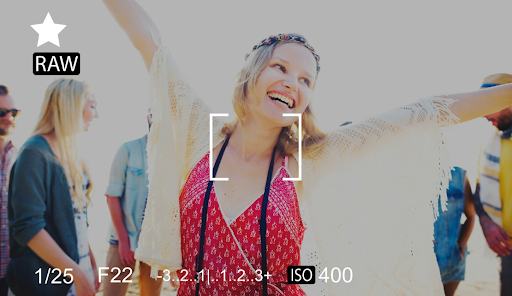We at Crystal Media are aware of the fact that a good shot with the right camera filter can result in a great shot. With the help of filters, your lens is secured, you can manage light and give it a creative touch, without doing extensive editing. In this case, you may be a professional photographer or an amateur, but knowing the image filters is important to take a spectacular shot.
Here in this guide, we will take you through the various types of filters used as the main ones, when to use which one, and how to select the best one that fits your camera and style of shooting perfectly.
What is a Camera Filter? What are the Reasons for using it?
The camera filters are also vital accessories that can be fixed to your lens face. They are primarily used to control the amount of light that goes through the camera and to guard against damaged lenses. They enable photographers to control reflections, to work on colors, and to produce certain effects that cannot always be realized with the help of post-processing.
It is with the help of filters that you are able to get well-balanced and professional photos immediately. They also lessen the time taken for editing in the future. Whatever type of photography you are doing, be it landscape, portrait, or travel photography, filters provide you with a greater level of creative control and results at the camera instead of post-processing.
Most Often Used Filters and Their Uses
The knowledge of various filters enables you to determine what to put in your camera bag. The most frequent ones and ways of using them are the following:
UV/Protector Filters: The purpose of this kind of filter is to protect your lens by not letting dust, fingerprints, and scratches build up on it. They do not have any effect on the quality of the images, but they are suitable for daily usage.
Driving (CPL) Filters: Polarizers control glare and reflectance on such surfaces as glass, wa, and glitzy metal. They increase the color contrast and make the sky look deeper and more dramatic, and this aspect is also very popular among landscape photographers.
Neutral Density (ND) Filters: ND filters minimise the amount of light entering the lens, but the colours remain the same. This will enable you to take long exposure shots, grain, blur motion shots, or widen the aperture in bright light.
Graduated ND (GND) Filters: These filters are used to darken a bright sky, penetrating light, leaving the foreground bright. They can be used in sunrise or sunset photography or beach photography, where the contrast of light is high.
Color and Special Effect Filters: These filters are creative overlay filters, used by people who want to play around with tones or soften skin, or create a specific lighting effect to achieve an artistic outcome.
All these filters have their own purpose, and thus possession of some of these in your arsenal will hugely increase your creative possibilities.
Selecting the Proper Filter for Your Camera System
We also have a great variety of filters that can fit any major camera system, and if you have a Sony camera, a Canon camera, or a Nikon camera, we have a filter that fits your camera. In order to determine your ideal Zeiss fit, read the thread diameter on your lens barrel (which is in millimeters, such as 58mm or 77mm). The filters that are compatible with this size can be bought, or a step-up ring can be used to go with other lenses with a single filter.
We also suggest the use of quality filters of optical glass since they do not create any blur in the image. Filters with low quality may add unwanted reflection or degrade the contrast of the image, and therefore, a good brand guarantees professional outcomes.
Useful Hints in Using and Taking Care of Filters
It is recommended to properly use your filters to guarantee a long life of performance and clean and crisp shots.
Purchase Depending on the Purpose: ND and polarizer are purchased as outdoor shooters and protectors, respectively.
Be Cautious When Stacking Filters: Excess filters may become a problem with caution caused by vignetting or lens flares.
Clean Filters: Clean filters should be cleaned with a microfiber cloth, an air blower, and lens cleaning solution.
Practice: Practice with other filters in various lighting to learn their effects on exposure and color balance.
In Crystal Media, we have specialists who will always be willing to assist you in selecting the appropriate filter to use during your shooting and also how to use this filter to your advantage.
Why Should Crystal Media Purchase Filters?
Crystal Media, being one of the reliable suppliers of photography equipment in the UAE, deals with professional camera equipment and accessories. Our filters are genuine, durable, and high-quality. Our professional employees would assist you in choosing filters that would match your shooting style, be it in portraits, landscapes, or commercial photography.
Your investment in high-quality gear to satisfy your creativity needs will provide you with a guaranteed personalized shopping experience when you make purchases with Crystal Media, great prices, and the certainty that you are spending well.
Final Thoughts
The filters may be considered as the tiny details, though, in professional photography, they are quite important. They protect your lenses and even your exposure, as well as help you achieve the perfect shot, even under very difficult lighting conditions. At Crystal Media, we would suggest the basics of protecting filters, a circular polarizer, and a neutral density filter, which are the basic components of any photographer.
You have a Sony Camera, a Canon Camera, or a Nikon Camera; we have the right filters to enable you to make your creative vision come true. See us now, and we will not waste any shots.

Leave a Reply